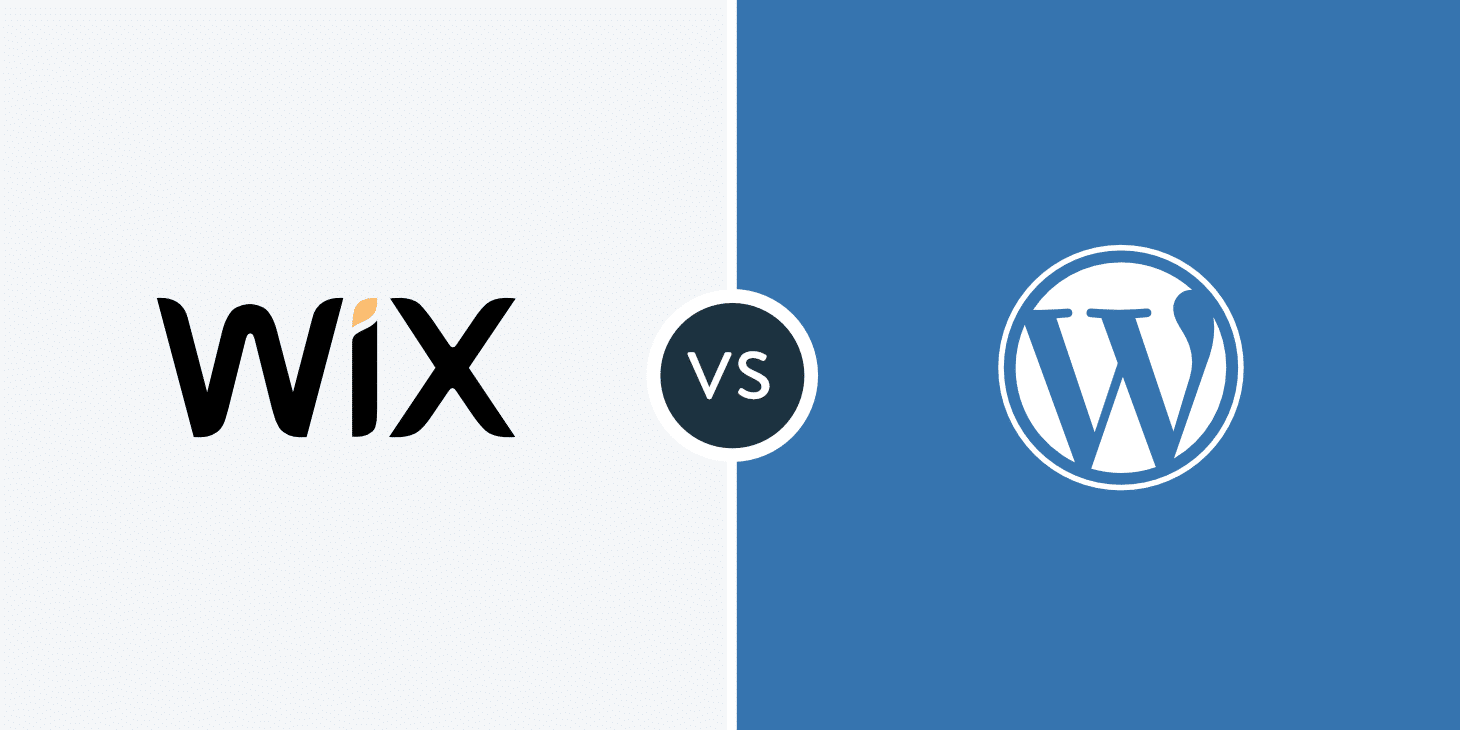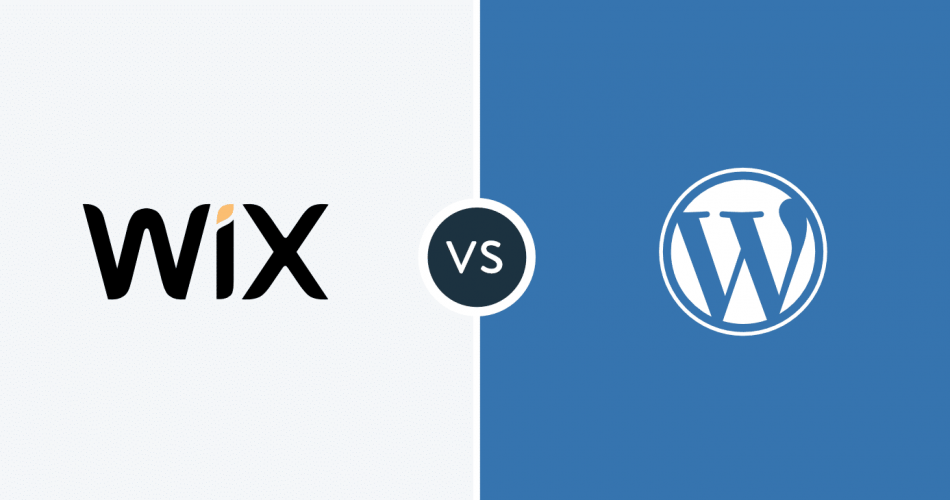Last Updated on October 12, 2021
The digital age is at its prime with most people having access to Internet than ever before. This number is growing exponentially, driving the demand for reliable website solutions.
WordPress and Wix are the 2 most popular website solutions at present. According to Builtwith statistics, WordPress powers 28 million websites at present while Wix is behind 4.5 million websites. On paper both seem to be neck to neck competitors, but there are substantial differences.
The key difference between the two is underlying structure. WordPress is an open source content management system (CMS), whereas Wix is a hosted website builder. Here, we are going to focus on the SEO implications of both the website solutions and try to determine which one is better.

Wix: What Makes it Successful
WordPress that was not dominant force in the website building industry started to lose its grip when other website builders entered the market. These new competitors were hosted, offered more features and had user-friendly interfaces, pushing WordPress’ dominance to a side.
Wix is leading the new generation of website builders. It is one of the most user-friendly platforms to build modern -looking websites. However, it is not the favourite of technical users who want to have more control over their websites. But, Wix has found a way to appeal to such people by adding more and more functionalities and tools focused around SEO. Speaking of the tools, there are pretty technical add-ons available but here is a glimpse of Wix’s SEO capabilities:
URL structure change: you now have the ability to modify default URL structure, edit remove or add URL prefix, customise subdirectory names and even create flat URL structure.
Visualisation of log files: now you can view visualisation of bot traffic over time, response status over time and bot traffic by Page.
Automatic site map: create site maps, 301 redirects, canonical URLs and other relevant meta tags.
In the past, none of this was possible without using third-party tools. Adding a lot of third-party tools like to disorganisation and less than optimal results.
Also, accurate reporting was a challenge for Wix, and integrating it into its core system is a major upgrade.
Wix for SEO – The Cons
Wix might be a modern website builder, but it lacks on several fronts and some of these cons impact important as your factors.
The link structure Wix uses is uncommon that most SEO professionals do not care for. There is a #in every URL. Such URL structure is served through JavaScript which is again teamed as not an ideal factor for search engine crawlability and indexation.
While Wix allows to add HTML code element, it is still quite restricted. For most advanced users, the inability to add custom code is a huge disadvantage.
Also, there is a lot of code bloat that can result in page speed issues.
WordPress: What Makes it so Dominating?
WordPress was one of the first widely used website solutions that allowed anyone to get a website up and running in no time. It’s open source infrastructure allows a huge community support.
While it is a free CMS and all the basic functionalities are free, but for most modern site functions you will require to pay for plug-ins.
There are all sorts of plug-ins available that allow you to incorporate literally any functionality you can think of into your WordPress websites. The assortment of SEO tools is also huge. Also, as there are millions of users, WordPress has a huge community and more forums than any other website solution to extend support to its users.
WordPress for SEO – The Cons
WordPress plug-ins are made available by different companies so there is no standard hierarchy that all plug-ins follow. They differ in functionalities.
Yoast SEO plugin remains the most popular is useful for WordPress, but there are many more tools available. These tools work great for most setups, but there is also a possibility to conflict with other plug-ins and break the website. It is not unusual to hear a plug-in vulnerability affecting millions of WordPress websites.
According to some experts, the WordPress has outgrown in touch with the needs of modern publication. The built-in code is legacy and hinders a website’s Ability to optimise for core Web vitals.
But that being said, they huge plug-in market of WordPress plug-ins has been a driving force for its popularity. New SEO tools are being made available every day that enables you to take control of the SEO of your WordPress site from the dashboard.
This Search Engine Journal guide on WordPress SEO is an excellent starting point.
Wix vs WordPress: SEO Functionalities
Let’s save all the trouble and have a quick look at basic fundamentals of SEO that both the platforms offer
Features
| Features | WordPress | Wix |
| Title Tags | Yes | Yes |
| Meta Descriptions | Yes | Yes |
| H1-H6 Tags | Yes | Yes |
| XML Sitemaps | Yes | Yes |
| Alt Tags | Yes | Yes |
| 301 Redirects | Yes | Yes |
| No Index Tags | Yes | Yes |
| Schema Markup | Yes | Yes |
| Mobile Friendly | Yes | Yes |
| Connect GSC | Yes | Yes |
| Connect GA | Yes | Yes |
| Connect Bing Webmaster Tools | Yes | Yes |
As evident that both cover the basic SEO needs equally, but things start to change when your SEO needs get more advanced.
On that front, WordPress is ahead of Wix by leaps and bounds. Still, for small businesses with limited SEO needs, any of these solutions will suffice.
What about Organic Traffic?
A Ahrefs study involving millions of sites found that 46% of WordPress sites receive some organic traffic, while only 1.4% of Wix websites get any organic traffic.
Conclusion: Wix OR WordPress
Most SEO professionals choose their favourite platform based on the one they have used the most and had best experience with.
Most reviews you will follow will be biased as people find a reason to discredit other options. If we look at the platforms today, Wix has made some major upgrades in the recent years. The control troubles and SEO disabilities once had are no longer existent. This is why you can perform basic SEO optimisations on this platform on par with WordPress.
For small businesses, Wix or WordPress can be ideal solutions. As Google recently claimed that the content on a site is what is important regardless of what’s it’s built on, if you do not have any major technical or SEO requirements, you can choose Wix.
However, if you want scalability and customisation and want to incorporate advanced SCO is a long-term strategy, there is no better alternative than WordPress.

